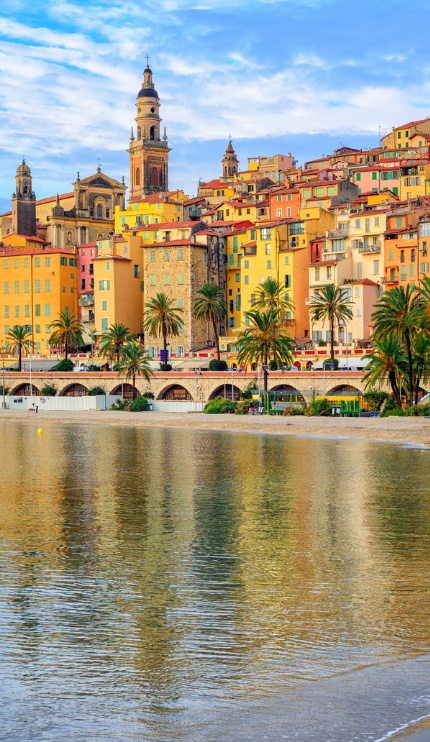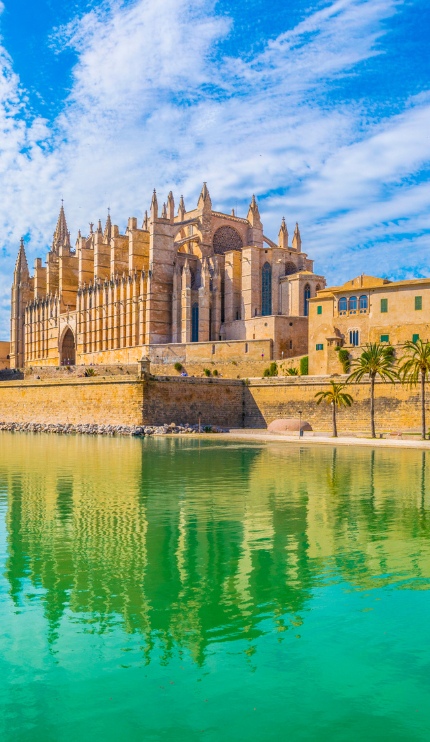We'll show you where
Surf, scuba, scrabble, festival, family time, honeymoon, sight-see... whatever experience you are after, discover our collection of holiday villa rentals perfect for you
Expert Advice for Exceptional Stays
Personal Touch
We Work For You
Verified Villas
The Best Price
Global Getaways
Explore available locations and reach out to initiate the process of crafting your unique and exciting journey.

Italian Lakes
The Italian Lakes, located in northern Italy, are renowned for their stunning landscapes, clear waters, and picturesque towns. Lake Como, Lake Garda, and Maggiore are the most famous, each offering its own unique charm. Lake Como is celebrated…

Cote d'Azur
The Côte d'Azur, or French Riviera, is a glamorous and captivating destination along the southeastern coast of France, known for its stunning Mediterranean coastline, luxurious resorts, and vibrant cultural scene. This sun-drenched region is a haven for those seeking elegance,…

Amalfi Coast
This stylish stretch of coast is Italy at its most iconic. Pastel-painted houses perch precariously atop vertiginous cliffs, tumbling down into the Tyrrhenian Sea. From Sorrento to Salerno, this celebrated coastline has been the darling of the world’s jet set…

Balearic Islands
From fun-loving Ibiza, where the cool, cosmopolitan set summer, to low-key luxury in Menorca, the Balearic islands are the epitome of Mediterranean chic. Whether you come for relaxation or revelry, Ibiza boasts both a barefoot bohemian vibe to the north…

Anguilla
Anguilla is a Caribbean gem, renowned for its luxury, privacy, and natural beauty, making it the perfect destination for villa rental vacations. The island’s serene atmosphere and exclusivity create an idyllic escape for those seeking relaxation or adventure. With 33…

Dominican Republic
The Dominican Republic is a Caribbean treasure, renowned for its white-sand beaches, turquoise waters, and vibrant culture, making it an exceptional destination for a luxury villa vacation. This sun-soaked paradise offers the perfect balance of relaxation and adventure, ideal for…

Provence
Whether you’re gazing over rolling rural scenery or strolling fields striped with sunflowers and vines, this diverse landscape provides an irresistible taste of rural France at its finest. Well-heeled Parisians and artists alike have long flocked to this idyllic region,…

Greece
Head to Mykonos for a hedonistic combination of Hollywood glamour and seductive scenery, where you’ll find the same carefree vibe that attracted the summering starlets of the sixties. Or step back in time through Crete’s many treasures, her depth of…

Italian Lakes
The Italian Lakes, located in northern Italy, are renowned for their stunning landscapes, clear waters, and picturesque towns. Lake Como, Lake Garda, and Maggiore are the most famous, each offering its own unique charm. Lake Como is celebrated…

Cote d'Azur
The Côte d'Azur, or French Riviera, is a glamorous and captivating destination along the southeastern coast of France, known for its stunning Mediterranean coastline, luxurious resorts, and vibrant cultural scene. This sun-drenched region is a haven for those seeking elegance,…

Amalfi Coast
This stylish stretch of coast is Italy at its most iconic. Pastel-painted houses perch precariously atop vertiginous cliffs, tumbling down into the Tyrrhenian Sea. From Sorrento to Salerno, this celebrated coastline has been the darling of the world’s jet set…

Balearic Islands
From fun-loving Ibiza, where the cool, cosmopolitan set summer, to low-key luxury in Menorca, the Balearic islands are the epitome of Mediterranean chic. Whether you come for relaxation or revelry, Ibiza boasts both a barefoot bohemian vibe to the north…

Anguilla
Anguilla is a Caribbean gem, renowned for its luxury, privacy, and natural beauty, making it the perfect destination for villa rental vacations. The island’s serene atmosphere and exclusivity create an idyllic escape for those seeking relaxation or adventure. With 33…

Dominican Republic
The Dominican Republic is a Caribbean treasure, renowned for its white-sand beaches, turquoise waters, and vibrant culture, making it an exceptional destination for a luxury villa vacation. This sun-soaked paradise offers the perfect balance of relaxation and adventure, ideal for…

Provence
Whether you’re gazing over rolling rural scenery or strolling fields striped with sunflowers and vines, this diverse landscape provides an irresistible taste of rural France at its finest. Well-heeled Parisians and artists alike have long flocked to this idyllic region,…

Greece
Head to Mykonos for a hedonistic combination of Hollywood glamour and seductive scenery, where you’ll find the same carefree vibe that attracted the summering starlets of the sixties. Or step back in time through Crete’s many treasures, her depth of…

Italian Lakes
The Italian Lakes, located in northern Italy, are renowned for their stunning landscapes, clear waters, and picturesque towns. Lake Como, Lake Garda, and Maggiore are the most famous, each offering its own unique charm. Lake Como is celebrated…
Luxury Rental
Properties
What travelers say about us
Jean was extremely helpful from start to finish. Everyone we encountered were top notch. Thank you!!
We enjoyed working with Betsy to confirm the Twin Palms villa and get everything set for when we got there. Betsy gave us the recommendations of what to do, where to get our groceries (and alcohol) and everything was set when we walked in the door. All recommendations were amazing!
Wonderful experience in every way
Great experience with Betsy and Lori of WhereToStay for Cocotier Villa in St. John. They provided great and useful information for a comfortable and fun stay. I highly recommend them!
Would utilize Where to Stay again
I am a repeat customer with WhereToStay due to their excellent service. We've always had an excellent experience. Highly recommend!!
Our recent stay at Six Turtles Villa on Taylor Bay was truly unforgettable. From the moment we arrived, everything felt thoughtfully prepared and effortlessly luxurious. The villa was stocked with everything we needed-from quality toiletries to a generous welcome of refreshments and cold beers, which was such a nice touch after a long day of travel.The home itself is spacious, beautifully maintained, and perfectly laid out for both relaxation and socializing. Each bedroom offered comfort and privacy, while the common areas were airy and inviting. The outdoor shower was a standout feature-perfect for rinsing off after a day at the beach, and somehow made every return from the ocean feel indulgent.Speaking of the beach-Taylor Bay is a true gem: calm, shallow, and postcard-perfect. Every morning, we looked forward to grabbing our coffee and walking a few steps to the sand where the beach chairs were already set up for us. Sitting by the water each morning, watching the tide roll in while lounging in those chairs-it was truly heavenly.The pool area was another favorite spot, especially with its turtle mosaic and ocean views. Between dips in the pool and relaxing on the patio, it felt like our own private resort.We can't say enough good things about this villa. It offered the perfect balance of privacy, comfort, and luxury. We're already dreaming of coming back-and next time, staying even longer. Highly recommended!
A First Class Company and I had Excellent service from Betsy & Sharon for the 6th year of using them!!!
This was my third Villa rental with WhereToStay and I have no disappointments. At booking the agents are very helpful with "is this Villa good for small children?", " is there a generator" and many questions I might not ask otherwise.After booking, the concierge, Sharon is super helpful and knowledgeable about activities, restaurants, what to avoid, etc.My favorite feature about WhereToStay is they offer pre-arrival provisions. We don't need much but after a long travel day from Arizona it is nice to arrive, pour your favorite cocktail, enjoy a premade dinner and go to bed knowing that breakfast is available.
WhereToStay really nailed it. They found the perfect villa for us in Croatia. Everyone went above and beyond in helping make our holiday really special. I highly recommend using them.
Extremely knowledgeable and responsive to any questions. Definitely adds a welcome resource over and above just making arrangements with the owner or rental company.
Perfect. VERY friendly and easy to work with. Great advice and recommendations for everything you will need. Know the islands and other locations well.
We booked the villa a bit last minute, but Sharon and Andrew were great to work with. They responded quickly to calls and emails and made the whole process smooth. They also gave us some helpful recommendations for restaurants and activities, which we really appreciated.
This is the 4th time I have used WhereToStay. Easy, professional, and fun. I love working with Andrew and Lori.
We had an absolutely amazing experience at Blue Vista! From the moment we arrived, everything about our stay exceeded our expectations. Andrew was fantastic-professional, responsive, and genuinely committed to making our experience unforgettable. Equally impressive was Lori, our concierge, who went above and beyond to make everything easy and stress-free. From planning activities to coordinating details behind the scenes, her support added so much value to our trip.The villa itself was stunning, beautifully maintained, and perfectly set up for a relaxing, luxurious vacation. We can't thank Andrew and Lori enough for creating such a memorable and relaxing getaway. Highly recommend!
Great company and wonderful easy people to help you !.. highly recommend where to stay!
This is a great company and will use again
As always Betsy and Sharon were great to work with. Always responding quickly to my questions. They treat me like a friend rather than a client. I wouldn't use any other vacation rental company.
Everyone I dealt with from start to finish was very helpful and great to work with in making our vacation unforgettable!!
Sharon and Andrew made every step of the trip seamless. By the time we got there the only thing left to do was relax and enjoy ourselves!
The whole process from booking to checkout was super easy and the team was very responsive to any questions/concerns we had
Working with Betsey and Sharon from WhereToStay was such a pleasure! They were quick to respond with any questions and gave great recommendations and information. They even called after we were in the villa to make sure we had everything we needed. I will definitely use them for any future Caribbean vacations!
WhereToStay is a great company to work with. Their travel counselors are very knowledgeable, responsive and helpful, and will make sure you have all the information you need to make your vacation unforgettable. I've booked with them for years and will continue to do so in the future.
It was a very good experience and the concierge were quite knowledgeable and gave us good advice.
Our stay at Happy Bay Villa in the Grand Case area of St. Martin (booked through WhereToStay.com) was exceptional from start to finish. The preparation and communication were outstanding. Sharon Masters, our U.S.-based contact, was absolutely superb-friendly, responsive, and thorough. Before our trip, we received a detailed link with everything we needed to know: a summary of the property, concierge options, a local map, destination recommendations, and a full travel guide. WOW-we felt completely supported.The villa itself is stunning-immaculate, spacious, and beautifully designed. Perched on a hillside, it offers breathtaking views toward Anguilla and is the perfect setting to relax and soak in the island's natural beauty. The pool was a daily highlight, both for cooling off and enjoying the view.Following Sharon's smart advice, we pre-ordered groceries and extras from SXMlesHalles.com. Having food and drinks waiting for us upon arrival was such a treat. Some of the best items we pre-arranged: a cooler (a must!), bean toss game for fun, and extra ice-which we were grateful to have almost daily.St. Martin is truly an island to treasure, and Happy Bay Villa gave us a luxurious home base to enjoy it fully. We would absolutely stay here again without hesitation.One small tip for future guests: Bring your own washcloths, as they are no longer provided (a post-COVID change that caught us slightly off guard).This villa and booking experience exceeded our expectations-thank you to Sharon and the whole team!
Couldn't have been happier with our experience with WhereToStay. Professional, prompt response throughout the entire process. Very helpful tips about the whole vacation.
We had a fantastic family vacation staying at the Castaway Villa. We had 8 adults and 3 kids (5,3,and 5 mo). The villa was as good as the pictures. The views were amazing and the little cove on the beach provided the perfect place for our family to enjoy the beach without other people. The beds were very comfortable and the house was very nice. The pool worked out great for our smaller kids. We loved Paul who helped us with all of our needs. We also felt very safe with the security guard who walked around at night. We had 2 minor maintenance issues (kitchen drawer and door handle malfunctions). We notified Paul and he had someone come over and repair them within 15 minutes! Overall the house was great and we would highly recommend it to anyone!
Great website makes selecting and booking the right villa easy, excellent communication and attention to detail makes for a smooth as silk experience.
This company was impressive. They were extremely responsive, knowledgeable, and organized. When renting a home in another country, it is helpful to feel like you are receiving honest information. All advice from location to recommendations were accurate and made the trip so much more enjoyable.
My family has used wheretostay.com for 5 vacations and this will not be our last. I recommend this agency all of the time to friends and acquaintances.
Andrew and Lori were phenomenal to work with and organize our trip. We are return customers and are were again extremely happy with their customer service and attention to detail!!
Amazing once again -this is the 3rd time we've used WhereToStay and have been thrilled each time!
It was a great experience. They were very helpful in picking the right Villa for us in Anguilla. Our concierge was fabulous. Through every step of the way after booking, she provided all the necessary information for our trip to the island and what to expect when we arrived. She was also very helpful in recommending restaurants, activities, and charter boats from St. Martin for our arrival and departure.
I am already looking on this site for my next year trip. This time bringing whole family.
Highly recommend,easy to work with, efficient & prompt to respond to any questions!
We had a great experience with WhereToStay. Very responsive and helpful.
I couldn't have been happier with services provided by the staff at Where To Stay.From the start they made my experience seamless. I would highly recommend them and will continue using them in the future.Thanks!!Tom B
Our vacation was truly special. Jean made our vacation planning effortless and provided exceptional service and made it a once in a lifetime experience.
Wheretostay is now my preferred provider when looking for vacation homes in the Caribbean. I've worked with them twice now and both experiences were excellent.
Fantastic villa rental site, the best I have ever used.
Our trip was great and we had no disappointments in our stay. The information provided was useful and accurate and all went as planned
Fabulous!
I have used WhereToStay and Betsy 3 or 4 times now for houses on St John. They are always professional and courteous to deal with. Very helpful for or info and quick to respond to questions I have. Obviously I can use other companies but I wouldn't even think of using anyone other than Betsy and WhereToStay.
Great experience and will definitely use them again.
Outstanding in every way!
Absolutely perfect! Jean listened to what we wanted and nailed it!
Was perfect for us! Only issue was power outage due to storms and house didn't have generator Will always make sure there is one at a house in future
It's always nerve racking to book online with a company you don't know. And when you're booking in a different country and spending thousands of dollars it makes it even more frightening. However, this company is legitimate. Our agent Betsy Carmichael is a dream to work with and made sure to answer any and all questions. We loved our experience so much that we booked with her again and went back to the same island and the same neighborhood. We would highly recommend wheretostay.com and Betsy!
Wonderful!
I am very happy with the lines of communication from start to finish of renting the villa.
Jean was extremely helpful from start to finish. Everyone we encountered were top notch. Thank you!!
We enjoyed working with Betsy to confirm the Twin Palms villa and get everything set for when we got there. Betsy gave us the recommendations of what to do, where to get our groceries (and alcohol) and everything was set when we walked in the door. All recommendations were amazing!
Wonderful experience in every way
Great experience with Betsy and Lori of WhereToStay for Cocotier Villa in St. John. They provided great and useful information for a comfortable and fun stay. I highly recommend them!
Would utilize Where to Stay again
I am a repeat customer with WhereToStay due to their excellent service. We've always had an excellent experience. Highly recommend!!
Get inspired!
Traveling is all about sharing experiences and adventures, which is why we launched our travel magazine. Dive into our stories and find inspiration for your next trip!

Jean - 16 Aug 2025
Antiparos, Greece: FAQ - Your Questions Answered
Antiparos: You Asked – We Answered – Frequently Asked Questions Q: Where is Antiparos, and why haven’t I heard of it before? A: That’s exactly why you’ll love it. Just a short ferry ride from Paros in the Cyclades, ...
read more
Jean - 16 Aug 2025
Summer in Iceland: Midnight Sun Magic & Wild Luxury Adventures
Summer in Iceland: Midnight Sun Magic & Wild Luxury Adventures Best time to go: June–August Why go: 24-hour daylight, festivals, puffins, and nature at its most alive. If you think Iceland is only about glaciers and geysers, think again. Summer ...
Read MoreSign up for our newsletter
Be the first to hear about our latest destinations, discover our newest homes, and win in our exclusive competitions.



















